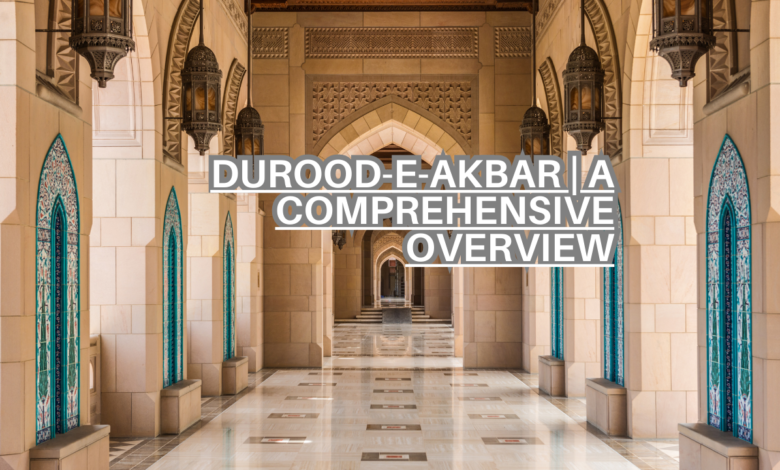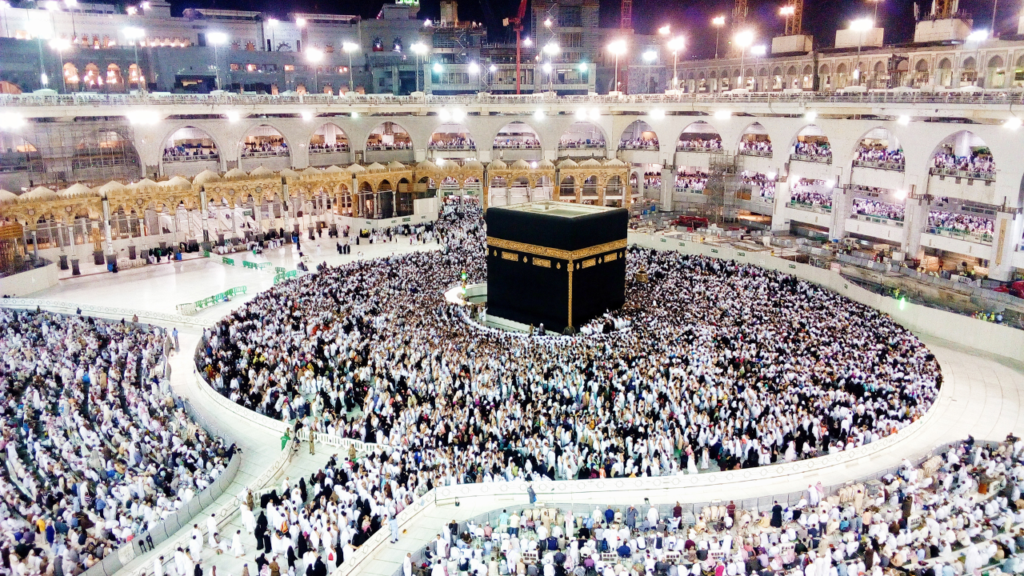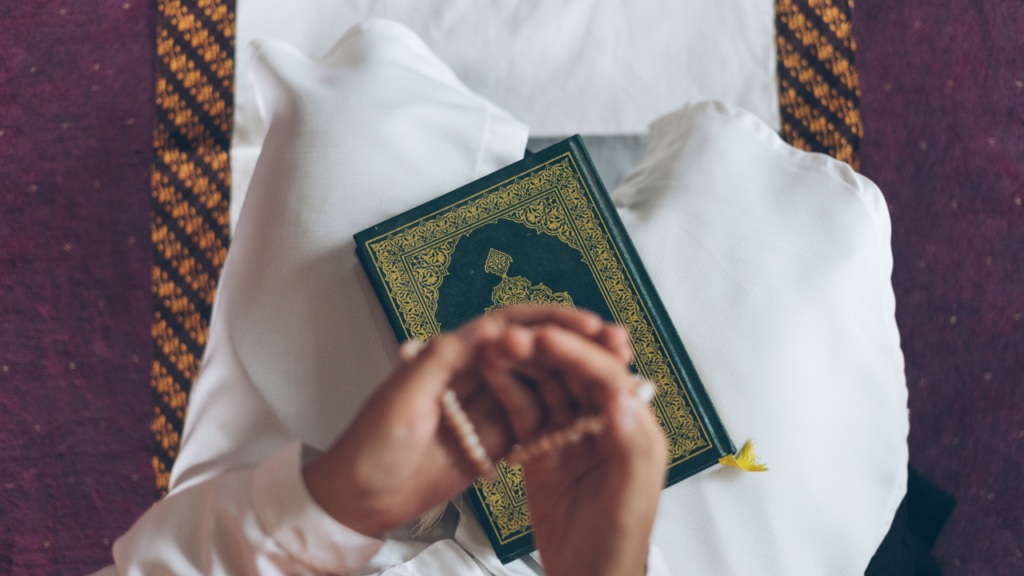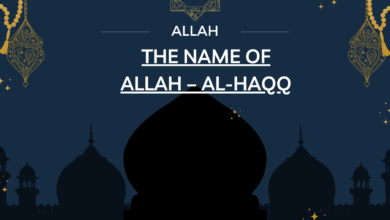Durood-e-Akbar | A Comprehensive Overview
Unveiling the Significance of Durood-e-Akbar: A Powerful Islamic Supplication

Durood-e-Akbar | A Comprehensive Overview
Durood-e-Akbar, also known as Salat al-Fatih, is a significant supplication in Islamic tradition. It is recited to invoke blessings upon the Prophet Muhammad, peace be upon him.

Introduction
Durood-e-Akbar, also known as Salat al-Fatih, is a significant supplication in Islamic tradition that holds great importance for Muslims around the world. This powerful and profound prayer is recited to invoke blessings upon the Prophet Muhammad, peace be upon him. In this article, we will provide a comprehensive overview of Durood-e-Akbar, exploring its origins, significance, and how it is recited.
The Origins of Durood-e-Akbar
The Durood-e-Akbar finds its roots in Islamic tradition, with its origins traced back to the holy city of Mecca. It is a supplication that was revealed to a saintly scholar and Sufi, Shaykh-e-Tariqat, Shah Waliullah al-Dihlawi, who lived in the 18th century. Shah Waliullah al-Dihlawi was a prominent Islamic scholar who sought to revive and strengthen Islamic teachings. He is renowned for his valuable contributions to Islamic jurisprudence, spirituality, and literature.
Also check.
- What is Haram?
- Who is the Current Caliph of Islam?
- What Foods are Forbidden in Islam?
- When was Islam Founded?
Significance of Durood-e-Akbar
Durood-e-Akbar holds immense significance in Islam, and its recitation carries several spiritual and worldly benefits:
- Blessings and Mercy: Reciting Durood-e-Akbar is believed to invite blessings and mercy from Allah upon the one who recites it. It is a means to seek the intercession of the Prophet Muhammad and a way to gain closeness to Allah.
- Protection and Forgiveness: The regular recitation of this supplication is thought to provide protection from harm and forgiveness for one’s sins. It is seen as a way to cleanse the soul and seek redemption.
- Spiritual Upliftment: Durood-e-Akbar is recited as a form of spiritual devotion. It helps believers establish a deeper connection with the Prophet Muhammad and reinforces their faith.
- Salvation on the Day of Judgment: Muslims believe that reciting Durood-e-Akbar can serve as a means to attain salvation on the Day of Judgment. It is an act of righteousness that can outweigh one’s sins.
Reciting Durood-e-Akbar
Reciting Durood-e-Akbar is a simple yet spiritually enriching practice. Here is a step-by-step guide on how to recite it:
- Begin with Wudu (ablution): Ensure you are in a state of purity before commencing any supplication.
- Sit in a Quiet Place: Find a serene and peaceful spot where you can focus on your recitation without distractions.
- Raise Your Hands: Raise your hands in a gesture of supplication.
- Recite Durood-e-Akbar: The text of Durood-e-Akbar is as follows:”Allahumma salli ‘ala sayyidina Muhammadin salatan takunu lahu rida’un wa’azan wadikran tayyiban tayyiban wa barikan wa salaman ‘ala sayyidina Muhammadin wa’ala alihi wa ashabihin wa azwajihi wa dhurriyyatihi wa barik wa sallim.”Translation: “O Allah, bestow your blessings upon our Master Muhammad, such blessings by means of which you may fulfill all your needs and which will satisfy you. O Allah, bestow your mercy upon our Master Muhammad, a mercy by means of which you may be pleased with, and may satisfy you. O Allah, bestow your mercy and peace upon our Master Muhammad, such peace by means of which you may be pleased, and which is worthy of your being pleased.”
- Repeat as Desired: Recite Durood-e-Akbar as many times as you wish. It can be recited after obligatory prayers, in times of distress, or whenever you seek the blessings and protection of Allah.
Conclusion
Durood-e-Akbar is a sacred supplication in Islam, encapsulating the love and devotion Muslims hold for the Prophet Muhammad, peace be upon him. It is a means to seek blessings, forgiveness, and spiritual upliftment. This prayer, originating from the teachings of Shah Waliullah al-Dihlawi, continues to be an integral part of the daily lives of many Muslims. Its recitation serves as a profound and heartfelt connection with the Prophet and, ultimately, with Allah.

FAQs
What is Durood-e-Akbar?
Durood-e-Akbar, also known as Salat al-Fatih, is a significant supplication in Islamic tradition. It is recited to invoke blessings upon the Prophet Muhammad, peace be upon him.
Who revealed Durood-e-Akbar?
Durood-e-Akbar is said to have been revealed to the Sufi scholar and Islamic luminary, Shah Waliullah al-Dihlawi, who lived in the 18th century.
What is the significance of Durood-e-Akbar in Islam?
Durood-e-Akbar is significant as it is believed to bring blessings and mercy from Allah, offer protection, forgiveness for sins, spiritual upliftment, and a means to attain salvation on the Day of Judgment.
How is Durood-e-Akbar recited?
It is recited by raising one’s hands in supplication and reciting the provided Arabic text. It can be repeated as many times as desired.
Can Durood-e-Akbar be recited at any time?
Yes, it can be recited at any time, but it is often recited after obligatory prayers, in moments of distress, or whenever one seeks blessings and protection.
Are there any specific conditions or rituals for reciting Durood-e-Akbar?
It is recommended to be in a state of purity (Wudu) before reciting. Find a quiet place to focus, raise your hands in supplication, and recite the Durood.
Can non-Muslims recite Durood-e-Akbar?
While Durood-e-Akbar is a Muslim supplication, there are no specific restrictions on non-Muslims reciting it, but it is primarily a practice of Islamic devotion.
Is Durood-e-Akbar recited in a particular language?
Durood-e-Akbar is traditionally recited in Arabic, but translations are available in various languages to help non-Arabic speakers understand its meaning.
Are there variations of Durood-e-Akbar?
Yes, there are different versions of Durood-e-Akbar with slight variations in the wording, but the essence remains the same.
How can Durood-e-Akbar benefit a person’s spiritual life?
Reciting Durood-e-Akbar is believed to strengthen one’s connection with the Prophet Muhammad and Allah, leading to spiritual growth, peace of mind, and a sense of protection and blessings in one’s life.




